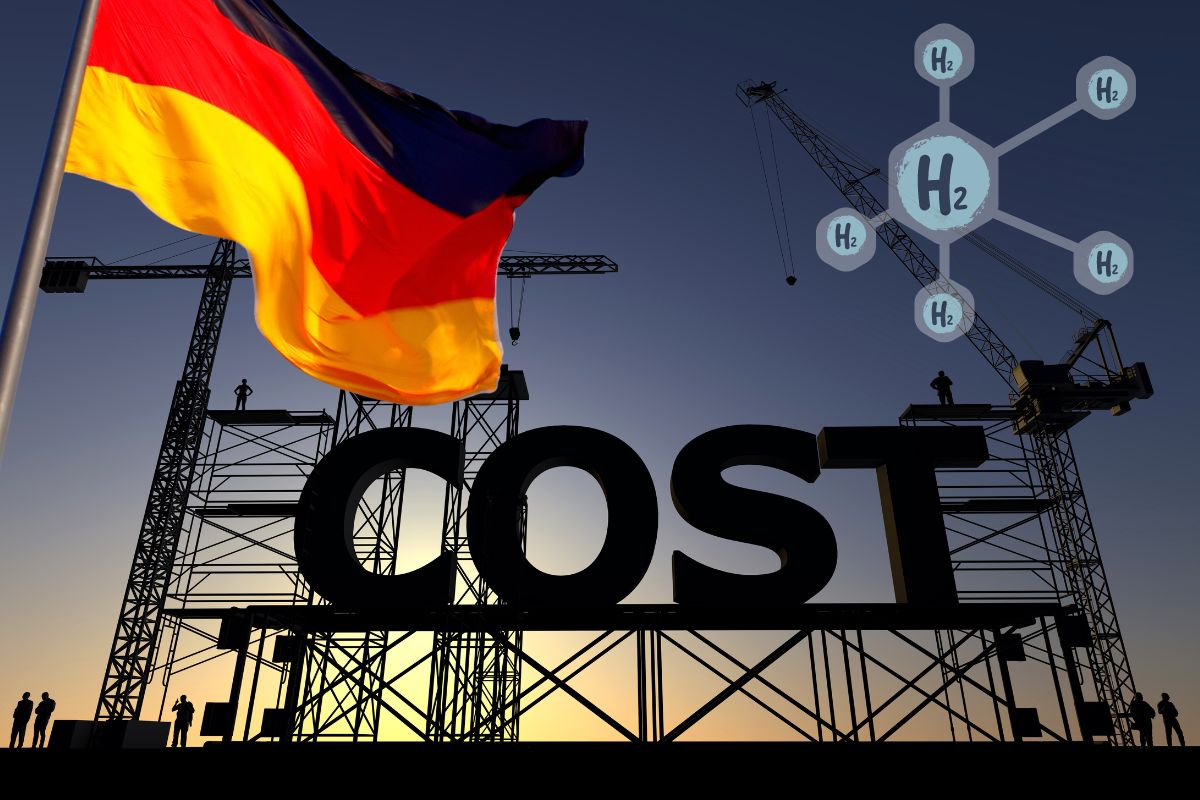
Germany Commits €20 Billion to Hydrogen Fuel Network Amid Energy Transition
April 10, 2024In a bold stride towards an innovative energy future, Germany has solidified its commitment to hydrogen power, outlining a comprehensive €20-billion ($21.6-billion) plan for an extensive hydrogen network that extends a staggering 9,700 km. The robust strategy, integrating 60% of the existing gas pipelines, spells a significant shift as the country deals with the urgent need to diverge from its heavy reliance on Russian gas, ignited by the ongoing Ukraine crisis.
Securing the Future of Energy
Germany’s ruling coalition, predicated on visionary foresight, has meticulously engineered a financing structure for this venture. It prioritizes longevity, nudging the deadline for network completion to 2037—a five-year extension imbued with profound strategic implications. This extended timeline serves to alleviate financial pressure on operators, fostering a conducive environment for technological investment in an industry at the cusp of expansion.
A Financial Framework Built on Stability
Projecting a future where hydrogen rules the roost, Germany is poised to establish a framework conducive to private sector investment. The model posits user fees as a funding artery, and to cushion investor trepidation, it dismisses the liability of individual operators in bankruptcy scenarios. This initiative, fortified by a government-backed 6.7% return on equity before taxes, emerges as a compelling incentive.
The Economic Ministry’s Long-Term Vision
In an exercise of financial prudence, the Economy Ministry contemplates an amortization account to distribute network construction costs. Aimed to shield current consumers from steep expenses, the plan envisions repayment completion by 2055.

Amidst the dawn of this hydrogen renaissance, however, lies a sliver of risk. Should demand falter and the market not solidify as anticipated, operators would shoulder roughly 24% of the costs—a clause embodying the rigorous yet cautious optimism of German policy.
Hydrogen Fuel Network of Hydrogen Valleys and Industrial Might
This groundbreaking initiative heralds a promising era where Germany is projected to nurture more hydrogen valleys than any other nation by 2033. These bustling hubs of hydrogen activity—with their spectrum of production, storage, and distribution—are harbingers of economic dynamism and a testament to Germany’s pioneering spirit in energy transformation.
The Drivers of German Dominance
Why, one might ponder, does Germany sit at the zenith of hydrogen innovation? Central to this enigma is a potent blend of government incentives, a cultural commitment to meticulous craftsmanship, and a business landscape that couples ingenuity with a relentless pursuit of excellence.
Germany’s vaunted automobile sector, underpinning a titanic €457.7 billion contribution to the national economy, manifests a paradigm of pioneering conviction. Affirmed by consequent government advocacy for hydrogen vehicles, premier German automakers such as BMW and Audi have made great strides toward hydrogen fuel cell research, leveraging it as the pivot for a cleaner automotive future.
The ramifications are profound, rippling through diverse sectors. From deploying hydrogen-powered taxis to envisioning a wholly hydrogen-powered public bus fleet in Frankfurt by 2030, Germany encapsulates the forefront of hydrogen innovation. The showcasing of this technology at premier hydrogen shows further cements Germany’s role as a crucible of cutting-edge energy solutions.
A Sustainable Future at a Necessary Cost
 Germany’s substantial financial dedication underscores a broader narrative: that while the investment in hydrogen infrastructure is undeniably substantial, inertia bears a cost—in dollars, environmental stability, and geopolitical dependence—towering and far less tenable. Germany’s blueprint, marked by strategic patience and astute economic maneuvering, proposes more than advancement. It is an invitation to the world—an unequivocal statement asserting the nation’s belief in the vast potential of hydrogen to revolutionize the energy landscape. In paving the path toward a clean-energy powerhouse, Germany dares to lead by example, persevering in the face of uncertainty, towards a future energized by the promise of hydrogen. As the world’s largest economy takes this bold step, we are reminded that investment in sustainable technologies today will pave the way for a cleaner and more prosperous tomorrow.
Germany’s substantial financial dedication underscores a broader narrative: that while the investment in hydrogen infrastructure is undeniably substantial, inertia bears a cost—in dollars, environmental stability, and geopolitical dependence—towering and far less tenable. Germany’s blueprint, marked by strategic patience and astute economic maneuvering, proposes more than advancement. It is an invitation to the world—an unequivocal statement asserting the nation’s belief in the vast potential of hydrogen to revolutionize the energy landscape. In paving the path toward a clean-energy powerhouse, Germany dares to lead by example, persevering in the face of uncertainty, towards a future energized by the promise of hydrogen. As the world’s largest economy takes this bold step, we are reminded that investment in sustainable technologies today will pave the way for a cleaner and more prosperous tomorrow.
Ready to test your knowledge on the most abundant element in the universe? Take our fun and engaging Hydrogen Quiz now! [forminator_quiz id=”58712″]



 With over 15 years of reporting hydrogen news, we are your premier source for the latest updates and insights in hydrogen and renewable energy.
With over 15 years of reporting hydrogen news, we are your premier source for the latest updates and insights in hydrogen and renewable energy.
The problem with the acceptance of hydrogen to power vehicles, especially those that carry heavy loads for long distances, is the high cost of fuel grade hydrogen which is produced by electrolysers powered by expensive grid electricity; it is expensive because the price is linked to the twice daily spot price of gas. Hydrogen for transport needs to be produced with renewable electricity connected directly to the electrolysers, bypassing the grid.